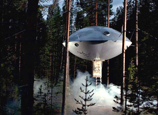
WASHINGTON, Dec. 5 (Xinhua) -- Without a national consensus on strategic goals and objectives for NASA, the U.S. space agency cannot be expected to establish or work toward achieving long-term priorities, said a new report released on Wednesday by the National Research Council.
In addition, there is a mismatch between the portfolio of programs and activities assigned to the agency and the budget allocated by Congress, and legislative restrictions inhibit NASA from more efficiently managing its personnel and infrastructure, the report noted.
"A current stated interim goal of NASA's human spaceflight program is to visit an asteroid by 2025," said Albert Carnesale, professor at University of California, Los Angeles who chaired the committee that wrote the report. "However, we've seen limited evidence that this has been widely accepted as a compelling destination by NASA's own workforce, by the nation as a whole, or by the international community."
"The lack of national consensus on NASA's most publicly visible human spaceflight goal, along with budget uncertainty, has undermined the agency's ability to guide program planning and allocate funding," Carnesale added.
The report recommends establishing a national consensus on NASA 's future with the executive branch taking the lead after technical consultations with potential international partners. The strategic goals and objectives chosen for NASA should be ambitious yet technically rational, and should focus on the long term, it adds.














 Solar yacht put into use in SE China
Solar yacht put into use in SE China


![]()
